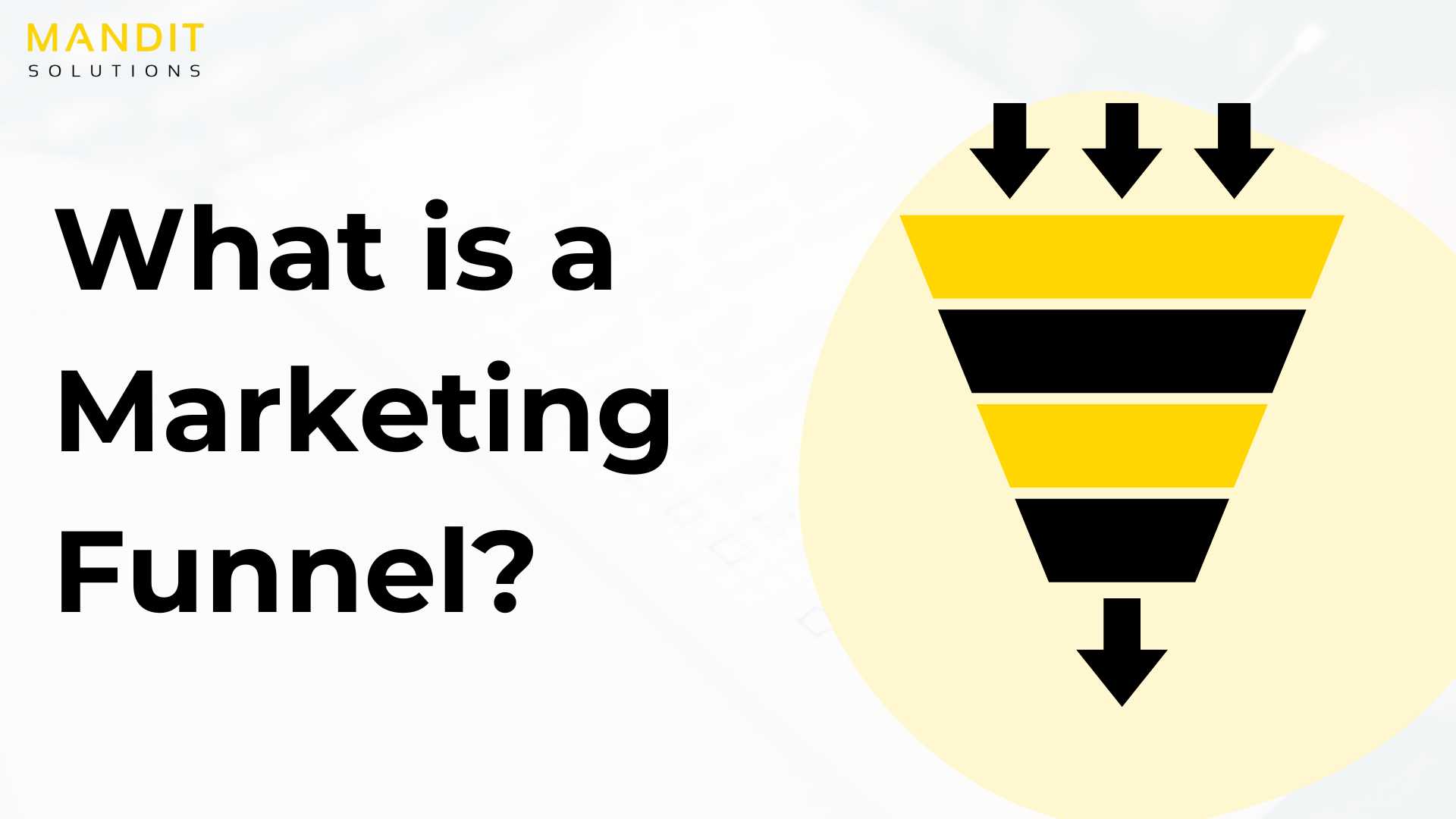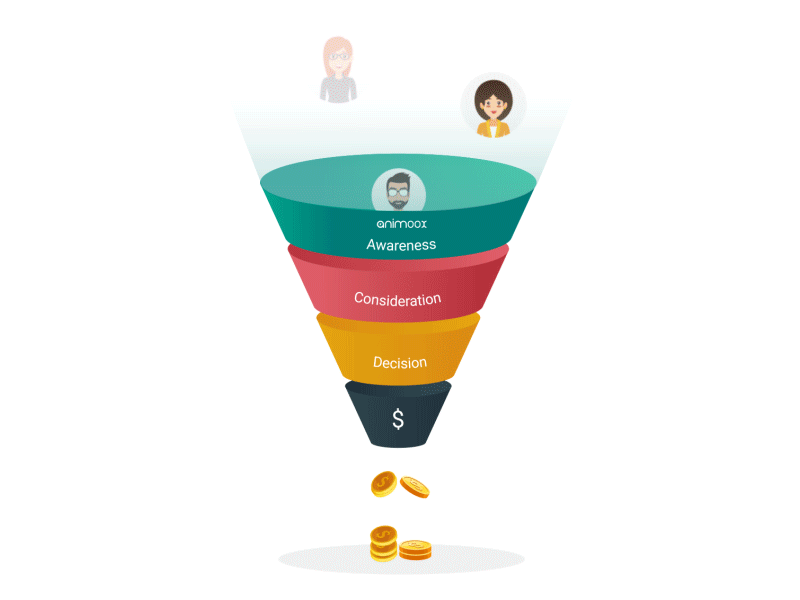
A marketing funnel is a representation of the steps a possible client takes, beginning with their first encounter with your brand and ending with their purchase. There are a few different points in this model when customers interact with a brand. A marketing funnel is a tool used by businesses to better understand their customers’ needs, streamline their marketing strategies, and increase revenue.
No marketing plan is complete without a well-thought-out sales funnel.

The value of a marketing funnel cannot be overstated. It has the potential to drastically improve your company’s bottom line. Some of the ways in which a marketing funnel can help you are listed below.
A marketing funnel maps out the path that a potential customer takes from learning about your brand to making a purchase. The standard marketing funnel consists of four stages:
Customers and businesses have different goals in mind, which might be anything from making a purchase to registering for a service to filling out a form. When the other person gives in to your request, you have a conversion. It’s the point at which the site visitor moves on from casual browsing to actually doing the intended activity.
You can’t just glance at a pie chart and assume you know your clients; you have to observe and talk to them. You’ll need both quantitative and qualitative data to evaluate the performance of your marketing funnel (more on this later).
However, there are several essential quantitative criteria to bear in mind when gauging the efficacy of your marketing funnel.
Between each of these stages, extra steps/actions can be done, but they will not affect the marketing funnel’s outcome unless they lead to the final action. A visitor may browse Amazon’s Careers page, but this isn’t a required action that needs to be accounted for in the funnel.
Why do we refer to the sequence of actions leading to conversion as a “funnel”? The reason is that many people make the initial move toward change at the start of something new.
More and more people are leaving the crowd as it advances, making it thinner. (Your sales team becomes involved to help seal the deal even further along in the process.)
Here, we’ll zero in on marketing funnels, or those that launch from a promotional effort of some kind. It might be a paid search ad, content marketing initiative, white paper download, video ad, social media ad, or even a billboard in the real world. First and foremost, there must be some kind of marketing effort.
“Flipping the funnel” into a customer experience funnel is becoming standard practice for marketers, salespeople, service providers, and experienced managers. Converting consumers into advocates drives new interest and potential customers toward the top of the marketing funnel.
Boost your results with our services and Modifying strategies to specific accounts for more effective success.
Copyright © 2025 Mandit Solutions Private Limited
| Cookie | Duration | Description |
|---|---|---|
| cookielawinfo-checkbox-analytics | 11 months | This cookie is set by GDPR Cookie Consent plugin. The cookie is used to store the user consent for the cookies in the category "Analytics". |
| cookielawinfo-checkbox-functional | 11 months | The cookie is set by GDPR cookie consent to record the user consent for the cookies in the category "Functional". |
| cookielawinfo-checkbox-necessary | 11 months | This cookie is set by GDPR Cookie Consent plugin. The cookies is used to store the user consent for the cookies in the category "Necessary". |
| cookielawinfo-checkbox-others | 11 months | This cookie is set by GDPR Cookie Consent plugin. The cookie is used to store the user consent for the cookies in the category "Other. |
| cookielawinfo-checkbox-performance | 11 months | This cookie is set by GDPR Cookie Consent plugin. The cookie is used to store the user consent for the cookies in the category "Performance". |
| viewed_cookie_policy | 11 months | The cookie is set by the GDPR Cookie Consent plugin and is used to store whether or not user has consented to the use of cookies. It does not store any personal data. |